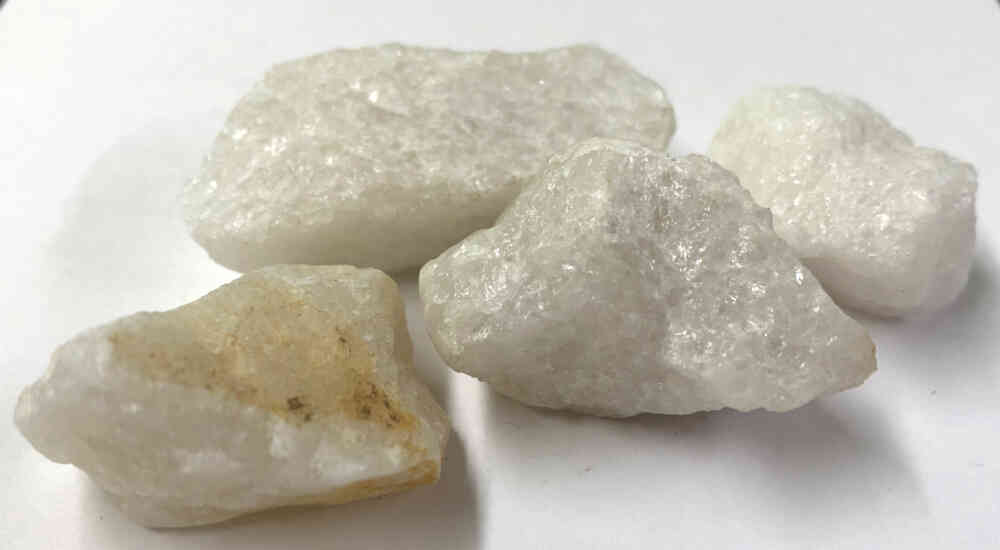Quartz Lumps
Quartz crystals are silicon dioxide, SiO2. Pure quartz crystals are colorless, but impurities in the structure lead to beautifully colored gems, including amethyst, rose quartz, and citrine. Most natural quartz crystallizes from magma or precipitates from hot hydrothermal veins.
Although man-made quartz is produced, the process requires heat not generally possible in a home setting. It's not a crystal most people want to try to grow at home since perfect crystals require specialized equipment. Synthesized quartz is made using the hydrothermal process in an autoclave. You probably don't have one of those in your kitchen, but you may have a smaller equivalent--a pressure cooker.

If you are truly determined to grow quartz crystals at home, you can grow small crystals by heating silicic acid in a pressure cooker. Silicic acid can be made by reacting quartz with water or by acidification of sodium silicate in aqueous solution.
The main problem with either technique is that silicic acid has a tendency to turn into silica gel. However, it is possible to synthesize quartz crystals with a pressure cooker. In 1845, the German geologist Karl Emil von Schafhäutl succeeded in making quartz the first crystal grown by hydrothermal synthesis. Modern techniques can be used to grow large single crystals, but you shouldn't expect fabulous gems from a home canning system.
Fortunately, there are similar-looking crystals you can grow at home. One rather spectacular option is to make a fulgurite, which is the glassy shape made by a lightning strike or other electrical discharge into sand. If you're seeking a large colorless crystal to grow, try alum crystals.
Power by Enlink Trading Co. Pvt Ltd
Designed and Developed by Shopweb